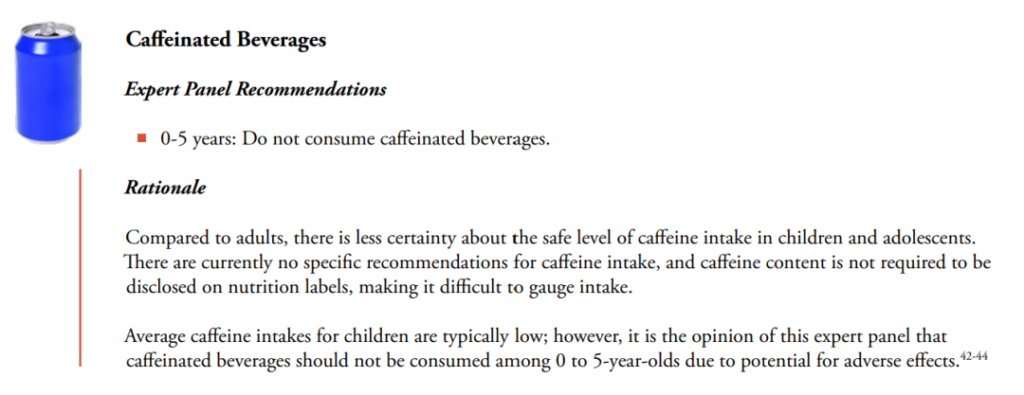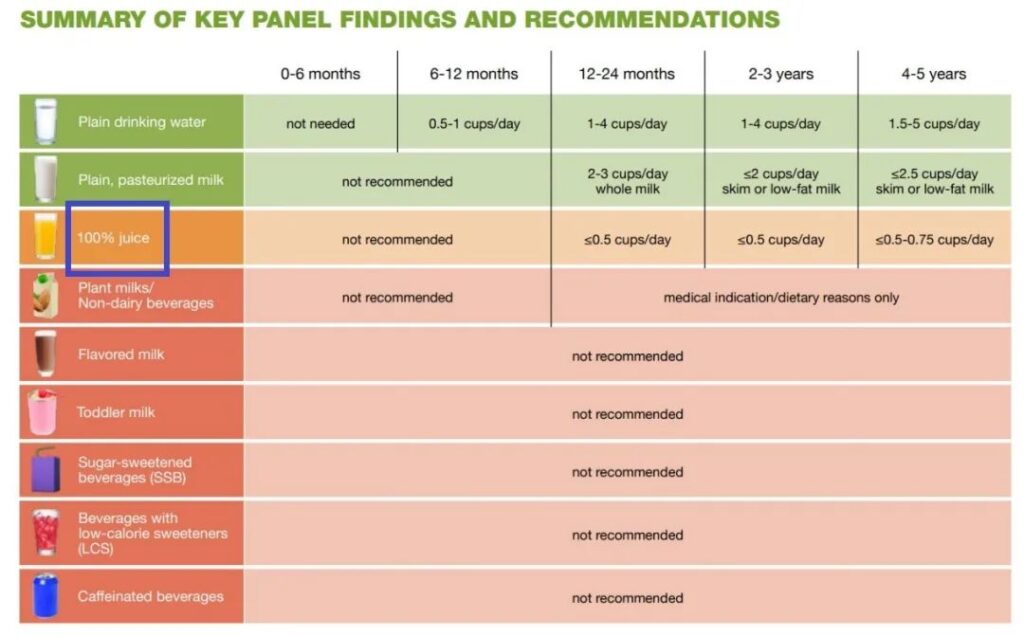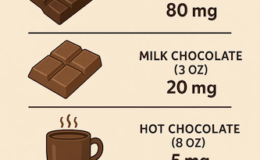Beverage Guide for Kids: What’s Safe and What’s Off-Limits
- By : Jessica Jiayi W
Summer is fast approaching, and with the scorching sun overhead, the beverage section in malls, filled with a dazzling array of drinks, becomes a challenge for parents!
Honestly, doctors don’t oppose children drinking beverages because not all drinks are unsuitable for kids or completely off-limits.
However, there indeed are drinks that children should strictly avoid. So, to not dampen the spirits of the little ones while ensuring their health, it’s essential to understand the following questions:
- Which beverages should children not drink at all?
- Which beverages should not be consumed before the age of 6, and can be moderately consumed after?
- Which beverages can be drunk but should still be limited for children?
- Which beverages are safe to drink?
Beverages that should not be touched at all!
It should be a common understanding that children cannot drink alcohol or beverages containing alcohol.
Firstly, alcohol affects the development of the central nervous system in children, leading to delayed development. Severe cases can cause epilepsy, resulting in intellectual decline or lower intelligence.
Secondly, alcohol can overload a baby’s liver, leading to abnormal liver function and, in severe cases, acute liver failure.
Likewise, a child’s gastrointestinal tract is not fully developed, and alcohol’s irritation to the mucous membrane is very strong.
Additionally, even a small amount of alcohol intake can affect a child’s appetite, causing severe cases of loss of appetite and digestive dysfunction.
In short, the harm of letting children drink alcoholic beverages is immense.
Even beverages with low alcohol content, such as rice wine, glutinous rice wine, fruit wine, cocktails… should not be given to children, not even a drop!
Additionally, some “hidden alcohols” in everyday life often go unnoticed. For example, alcoholic content can be found in snacks like egg yolk pies and chocolate pies, as well as in sour plum drink, whose main ingredient, dark plum, can produce alcohol after cooking. Fruits like lychee, grape, and apple, if stored too long, can ferment their sugars to produce alcohol.
So, it’s not just beverages; it’s recommended to thoroughly check the ingredients list of all consumables for children to avoid alcohol-containing drinks/foods.
Beverages that should not be consumed before age 6
01 Drinks containing caffeine
As a central nervous system stimulant, “caffeine” can temporarily eliminate fatigue and restore energy, which many adults can’t do without. However, excessive intake can cause irritability, anxiety, and other discomforts, and it is mildly addictive.
For a 20kg child, the daily caffeine intake should not exceed 50mg, while a regular medium-sized Americano contains up to 150mg of caffeine!
And it’s not just coffee that contains caffeine; soda (like cola) and sports drinks (also called energy drinks) also contain it, including tea, of course.

HealthyBeverage-ConsensusStatement
02 Tea
Tea and tea beverages are actually a type of caffeine beverage.
The reason for singling it out is the need to emphasize that the tannic acid in tea can cause gastrointestinal mucosa contraction and bind with proteins and iron in food, affecting children’s nutrient absorption.
Therefore, it’s not recommended for children under 6 years old to drink tea, especially strong tea.
03 Milk Tea
Although it also contains the word “tea,” the “top-trending beverage” that has swept the country for nearly a decade is significantly different from the “tea” mentioned above, so it deserves its own discussion.
Milk tea is not only about caffeine; as many people know, it’s also a high-sugar beverage.
How high is the sugar content?
According to a 2019 sample testing data by the a Consumers Association, a large cup of milk tea with regular sweetness contains an average of 35g of sugar (equivalent to 7 cubes of sugar), with the highest value reaching 48g.
Even the large cup of milk tea claimed to be “sugar-free” or “without extra sugar” contains an average of 15g of sugar (equivalent to 3 cubes of sugar), with the highest value reaching 32g, almost no difference from the average value of regular sweetness.
Your perceived “sugar-free” drink actually contains almost 43% of the sugar content of a regular sweetness drink, and the sugar content of drinks with 3 or 5 sweetness levels is even more concerning. A cup of “sugar-free” milk tea might exceed a child’s daily sugar intake limit!
Moreover, to control costs, many milk teas use creamer instead of milk, which is refined vegetable oil, also known as non-dairy creamer.
Despite being called “creamer,” it contains no milk at all! It’s a food additive synthesized from refined vegetable oil, hydrogenated vegetable oil, maltose syrup, glucose syrup, etc., mainly composed of hydrogenated vegetable oil, which contains “trans fats” that are harmful to children’s health.
Additionally, the various add-ons in milk tea, such as pearls, coconut jelly, red beans, oats, taro balls, pudding, etc., are not suitable for young children. These add-ons contain many food additives, have high viscosity, are hard to chew, may affect digestion if eaten in excess, and pose a choking risk.
Therefore, doctors recommend not giving milk tea to children under 6, and even for children older than 6, it’s best to limit consumption as much as possible.
Beverages to limit consumption
01 Plant Protein Drinks
Have you noticed when shopping in supermarkets, that besides regular pure milk, you might also see a row of milk with plant names, such as soy milk, oat milk, coconut milk, peanut milk… These are what we commonly refer to as “plant milk,” also known as “plant protein beverages.”
BUT, plant milk is not actually milk. Its biggest connection to milk is that they both contain the word “milk” in their names.
In reality, plant milk belongs to plant protein beverages. Currently, there are four main types on the market—bean milk, grain milk, nut milk, and fruit and vegetable milk.
These plants, which contain certain proteins, undergo processes such as soaking, crushing, grinding, homogenization, filtration, and sterilization to produce a thick plant protein beverage, which can be considered a “nut and grain soy milk.”
Although plant milk has benefits for the human body like milk, its nutritional composition is far inferior to milk. It’s more suitable for children allergic to milk or lactose intolerant, who can replace milk with plant milk under a doctor’s guidance.
However, for children who can drink milk, do not replace it with plant milk, as plant milk lacks sufficient protein, vitamin D, calcium, and other nutrients. Long-term replacement of milk with plant milk may lead to malnutrition.
Additionally, to enhance the taste, many plant milks add a lot of sugar and additives. Children under 3 years old should avoid them, and children over 3 should also limit their consumption as much as possible.
02 Other Sugar-Containing Beverages
Sugar-containing beverages refer to drinks that have sugar added during the manufacturing process and have a sugar content exceeding 5%.
In addition to the previously mentioned soda, tea beverages, sports drinks, energy drinks, and milk tea, common sugar-containing beverages also include soft drinks, soda beverages, fruit beverages, fruit-flavored beverages, juice, sugar water, etc.
The harm of sugar to children is well known. Early exposure to sugar-containing beverages can affect diet and health and lead to risks such as cavities, overweight, and obesity 👇


Source:
HealthyBeverage-ConsensusStatement
Therefore, it’s necessary to limit children’s, especially young children’s, exposure to sugar-containing beverages. Among these, fruit-flavored beverages (juice, fruit mix beverages, fruit powder mix) are the most common sugar-containing beverages children encounter. Thus, it’s crucial for parents to reduce their children’s intake of these beverages.
When buying beverages for children, pay attention not only to whether they contain white sugar, syrup, or maltodextrin in the ingredients list but also to whether they contain sweeteners, such as aspartame, saccharin, sucralose, acesulfame, etc. It’s best to avoid giving these to children.
Beverages that are safe to drink!
01 Pure Water/Boiled Water
Under normal circumstances, babies can start to be fed water in moderation after they are 6 months old and begin to accept solid foods.
How much to feed? There are two important references:
✔️The baby’s age and weight;
✔️The baby’s “dehydration signals”;
Based on the baby’s weight, we can determine the baby’s daily “total water intake”: the daily water intake per kilogram of body weight is approximately 120~150ml.
This means a 10kg baby’s “total water intake” per day is 1200~1500ml, which you can calculate based on your baby’s weight.

Source:
HealthyBeverage-ConsensusStatement
However, it’s important to note that this total intake includes breast milk, solid foods, etc., so you need to subtract these before calculating how much extra water to feed~
02 Milk
Babies over 1 year old, in addition to drinking water, can drink milk.
The American Academy of Pediatrics recommends: To avoid iron deficiency, children aged 1~2 should consume 480~720 milliliters of milk per day; children aged 2~5 should limit their intake to 480~600 milliliters.
03 Yogurt
Yogurt is also a very suitable healthy beverage for children, but infants under 1 year old should not consume yogurt. It can be gradually introduced after 1 year old.
Therefore, doctors generally recommend trying yogurt after the baby is 1 year old.
Of course, if the baby has a good digestive system, you can try it earlier, especially for babies with lactose intolerance. Yogurt can completely supplement the protein and calcium needed by the human body.
Because during the fermentation process, lactic acid bacteria break down lactose into galactose and glucose, making it easier for the human body to absorb, while also alleviating nausea, vomiting, flatulence, diarrhea, and other symptoms of lactose intolerance.
04 Pure Juice
The “Healthy Beverage Consumption in Early Childhood” consensus guideline, jointly released by AAP & ADA, etc., pointed out the most recommended beverages for children, including 100% pure juice 👇

Source:
HealthyBeverage-ConsensusStatement
However, the guideline also advises that infants under 1 year old should not drink juice, even pure juice, as juicing fruits leads to nutrient loss, sugar and acid concentration, increasing the risk of cavities and possibly causing obesity.
Simply put, if you can give children fresh fruit, don’t replace it with pure juice!
If there are no fresh fruits available, you can give children a small amount of pure juice to supplement vitamins. As for the amount, the guideline recommends: children aged 2~3 should not exceed half a cup (about 120ml) per day, and children aged 4~5 should not exceed 0.5~0.75 cup (about 120ml~180ml) per day 👇

Source:
HealthyBeverage-ConsensusStatement


